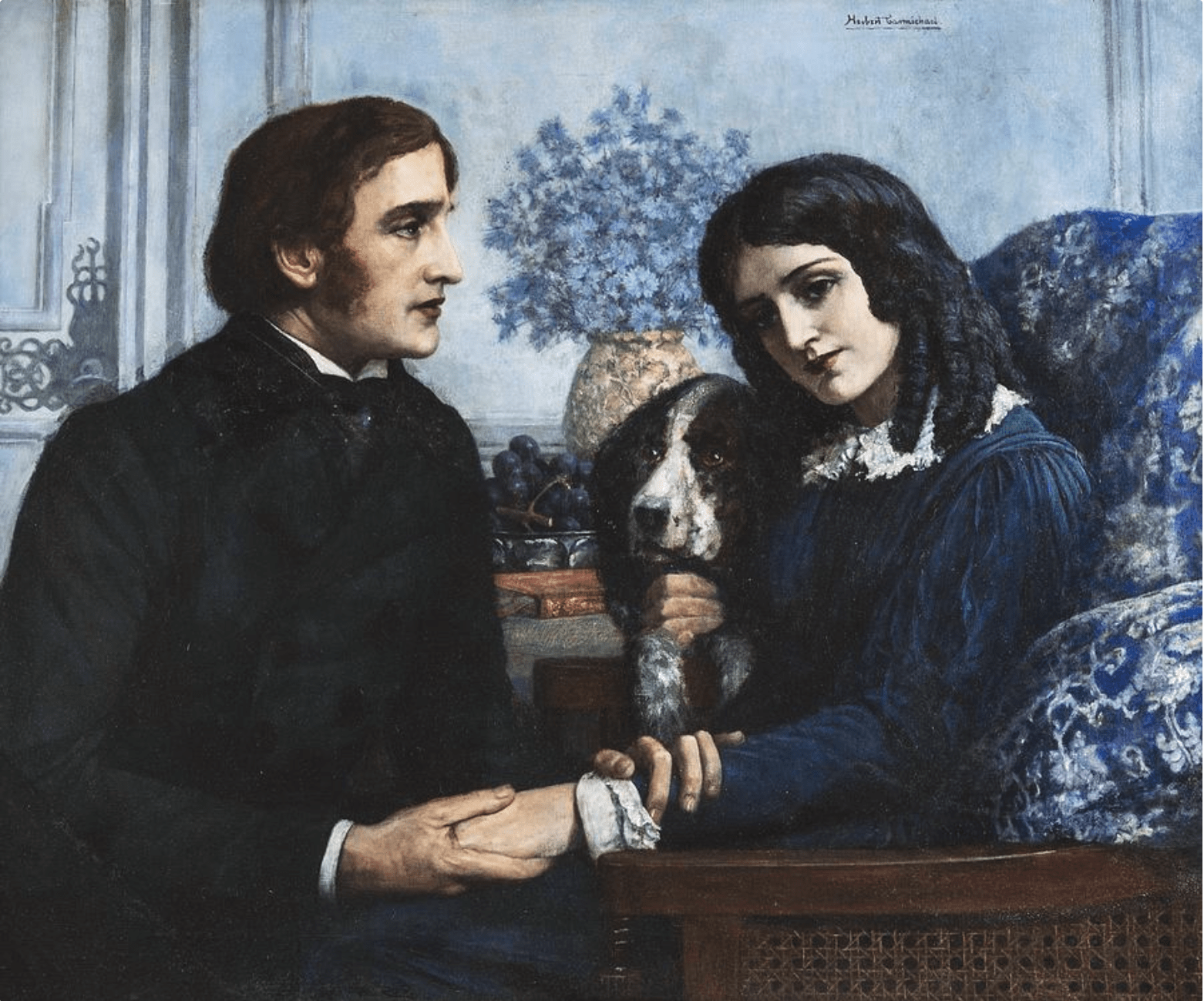Elizabeth Struggling to Express Herself in a Disapproving Society
Elizabeth Barrett Browning, as passionate as she was about speaking out against all forms of oppression, lived in a time where it was not commonplace for women to speak about the strong emotions they may have been feeling. However, during the time in which she was being courted by Robert Browning starting in 1845, Elizabeth was experiencing intense bouts of grief. Her favorite brother, Edward, had died in a sailing accident in 1840 and Elizabeth found herself trying to mourn deeply while also struggling with her already-declining health.
Out of this mourning came a collection of poems that she wrote which were fueled by the strong emotions she was feeling both for her brother’s death as well as towards Robert as their love grew stronger with each passing day. These poems were full of grieving, reflection, and passion- all things that society told her she was not supposed to speak about, much less create art about. Particularly, a woman being courted had no business sharing such personal feelings with anyone outside of the man she loved. For her to publish something of this nature would switch the well-accepted place of a woman from the muse to the muser, and the thought of doing something so bold instilled a lot of self-doubt and hyper-criticism within her as she made her final edits on the works. Elizabeth kept these works a secret until after she and Robert were married, when she finally shared them with him shortly after the death of his mother. Though he was skeptical about letting such personal information become known to the public, Robert thought that these poems were the best thing since Shakespeare and were far too good to go unseen. Knowing that Elizabeth was never one to shy away from protesting societal norms, he urged her to publish them.
Nervous about how the public would receive such personal words, she decided to publish them in the year 1850 under the title Sonnets from the Portuguese to imply that she was merely translating them from Portuguese. She did everything she could to make sure the public never found out that she was the real author of such intense and personal works.
These sonnets ended up being widely accepted and accompanied by positive criticism, becoming and, to this day, remaining one of Elizabeth’s most world-renowned works of all time.
Exhibit created by Bridget Chagollan

Manuscript of Elizabeth's poem Past and Future (1844)
This sonnet was written just over a year before Sonnets from the Portuguese and was published separately with the intention of further separating her identity from the sonnets. The past she refers to in this poem is that of pain, due to her brother’s death, and the future mentioned is the hope she will find through faith.

An early draft of what eventually became Sonnet V
This early draft of Sonnet V is 26 lines, when the version that was published only ended up being 14. These were complex emotions that Elizabeth was feeling and for clarity’s sake, she worked hard to make sure she depicted exactly what she was feeling to the best of her ability in the final version.

A transcription of the early draft of Sonnet V + the final draft
Shown is a transcription of the early draft of Sonnet V alongside the version of the poem that was actually published. Take note of the changes that were made and the things that were added and omitted to what ended up being the final draft, such as the shortening from 26 lines to only 14.

This is a really interesting exhibit! Very well done